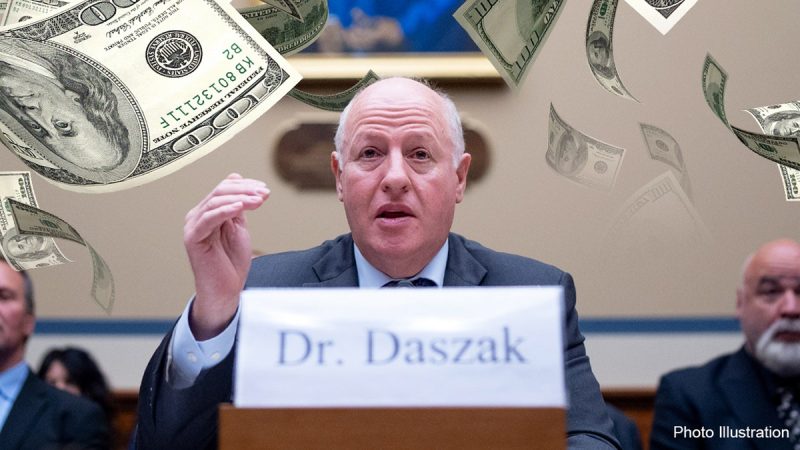Disgraced EcoHealth Alliance Reaped Nearly $100M in Taxpayer Funds Since 2008
The EcoHealth Alliance has come under intense scrutiny in recent years for its controversial research practices and alleged mishandling of taxpayer funds. Founded in 1971, the organization has positioned itself as a leader in the field of global health and conservation, focusing on researching emerging diseases and preventing pandemics. However, a closer look at their financial records reveals a disturbing pattern of behavior that has raised serious concerns among both government officials and the general public.
According to public financial records, the EcoHealth Alliance has received close to $100 million in taxpayer funds since 2008, primarily from federal agencies such as the National Institutes of Health (NIH) and the U.S. Agency for International Development (USAID). While the organization claims to use these funds for critical research projects aimed at safeguarding public health, recent investigations have uncovered a series of troubling practices that call into question their credibility and integrity.
One of the most alarming revelations about the EcoHealth Alliance is their involvement in so-called gain-of-function research, which involves modifying pathogens to make them more transmissible or virulent in order to study their potential risks to human health. This controversial approach has been widely criticized for its inherent dangers and the potential to inadvertently trigger a global pandemic. Despite these risks, the EcoHealth Alliance has received substantial funding for these types of projects, raising concerns about their commitment to ethical research practices.
In addition to their involvement in gain-of-function research, the EcoHealth Alliance has also faced accusations of financial mismanagement and conflicts of interest. An independent audit of the organization’s financial records revealed a lack of transparency and accountability in how taxpayer funds were being allocated, with significant discrepancies and questionable expenses that raised suspicions of misconduct. Furthermore, it was discovered that several senior executives at the EcoHealth Alliance had financial ties to pharmaceutical companies and other organizations that stood to benefit from their research activities, creating potential conflicts of interest that could compromise the integrity of their work.
The revelations about the EcoHealth Alliance’s questionable practices have sparked widespread outrage and calls for greater oversight and accountability in how taxpayer funds are being spent on scientific research. Government officials have pledged to conduct a thorough investigation into the organization’s conduct and ensure that appropriate safeguards are implemented to prevent future abuses. In the meantime, concerned citizens are demanding greater transparency and accountability from organizations like the EcoHealth Alliance to ensure that public funds are being used responsibly and ethically to advance scientific knowledge and protect public health.
As the controversy surrounding the EcoHealth Alliance continues to unfold, it serves as a stark reminder of the importance of upholding ethical standards in scientific research and ensuring that taxpayer funds are used for the public good. The revelations about the organization’s questionable practices highlight the need for greater transparency, oversight, and accountability in how research organizations operate and how they handle public funds. Only by holding organizations like the EcoHealth Alliance accountable can we safeguard the integrity of scientific research and protect the public from potential harm.

